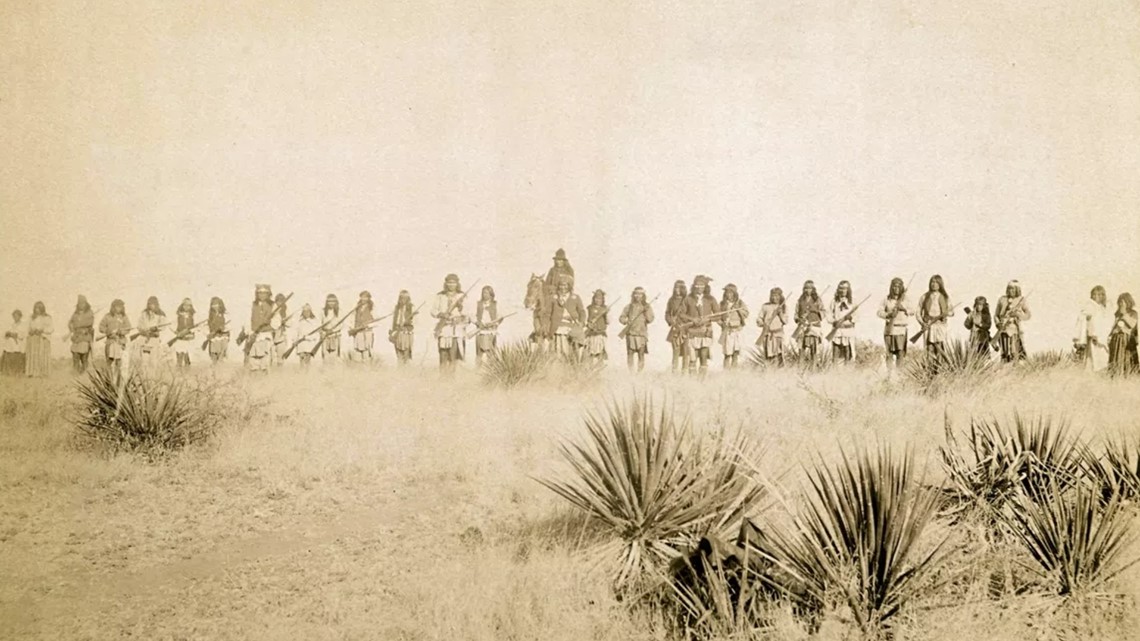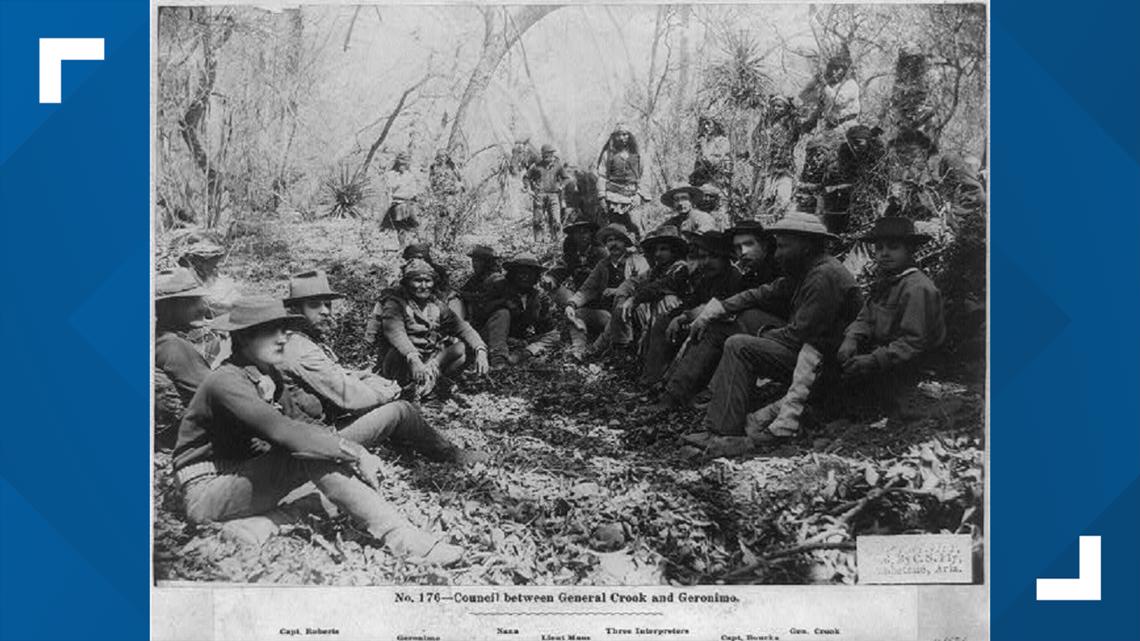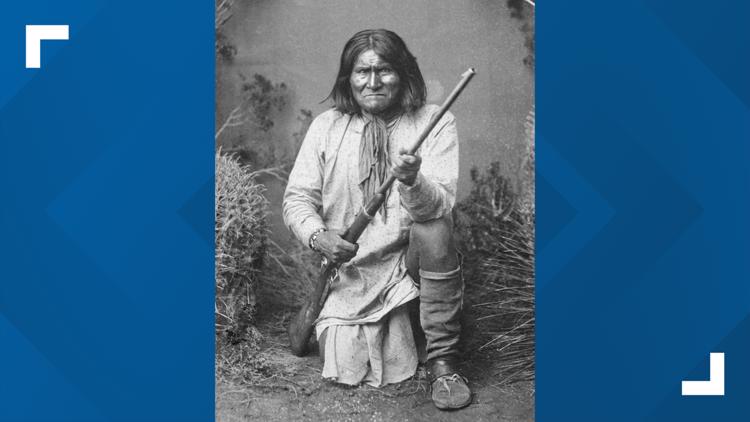ARIZONA, USA — Over a century ago, the longest war in American history came to a close right here in Arizona. At Fort Bowie just west of the Arizona-New Mexico border, one man's surrender brought an end to the 38-year-long Apache Wars.
Geronimo was born in 1829 to the Bedonkehe band of the Chiricahua Apache near the Gila Cliff Dwellings. His birth name was Goyakla, and the name Geronimo wouldn't come about until his campaigns in Mexico.
Geronimo was not a chief, but his powerful belief in his people's dignity and right to freedom made him a renowned leader during the Apache Wars.
As a young man, Geronimo's family was murdered by Mexican soldiers during one of the many massacres that took place during confrontations between local tribes and the Mexican government.
Although he was a medicine man, Geronimo fought alongside Chief Cochise in conflicts like the Bascom Affair and the Battle of Apache Pass. Mangas Coloradas was Geronimo's chief, and he was even present at Mangas's death, according to the National Park Service.


After those conflicts, Geronimo petitioned Chief Cochise and Chief Mangas to let him lead a campaign deep into Mexico to avenge his family.
As the story goes, he told the men he would "lead the battle as if he did not care whether he lived or died."
It was there that Geronimo reportedly received that name, taken from the cry of "Geronimo!" that Mexican soldiers would raise when they saw his warriors coming.
In 1874, the U.S. government relocated Geronimo and his tribe to the San Carlos reservation in eastern Arizona, where conditions were brutal. Geronimo and some of his followers were able to escape the reservation, setting off a decade-long game of cat and mouse between his men and the American government.
Despite being pushed back onto the reservation several times, Geronimo managed to avoid capture time and time again as he continued his raids on Americans in the area.
After eluding capture one last time in Mexico, Geronimo was pursued into the Sierra Madre by Lt. Charles Gatewood.
During that time, American General Nelson Miles decided to force the remaining Chiricahua people living at the San Carlos Reservation into a prison in Florida. His hope was that the close family ties they still held to Geronimo and his followers would be enough to force a surrender.
Miles was right.


On September 4, 1886, Geronimo agreed to meet with Gatewood after receiving the news of his tribe's impending imprisonment. The two held conference at the now historic Fort Bowie which had been erected after the Battle of Apache Pass; a battle that Geronimo himself took part in.
It was there that Geronimo agreed to surrender.
“Once I moved about like the wind. Now I surrender to you and that is all,” he famously said.
After the surrender, Geronimo was sent to Florida then Alabama and eventually the Kiowa-Comanche-Apache Reservation near Fort Sill in Oklahoma. It was there that the Apache leader would eventually pass away in 1909.
WE ❤ ARIZONA
Explore amAZing people, places and things across our state on our 12 News YouTube playlist here.



